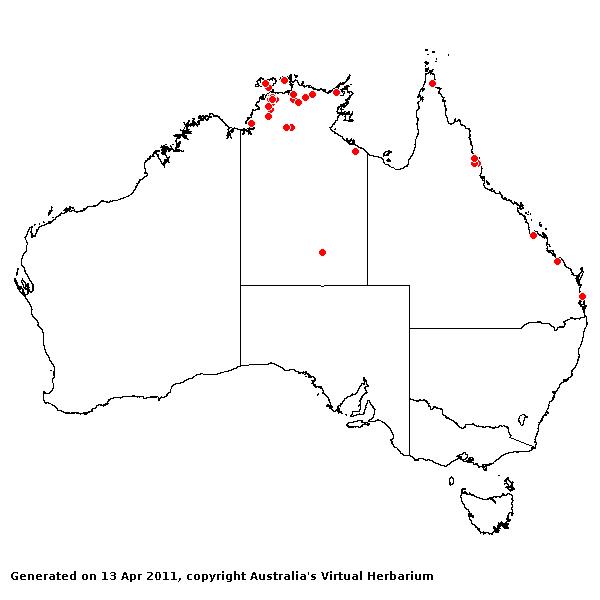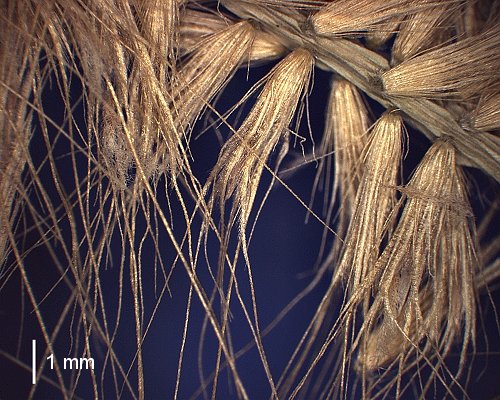Cenchrus polystachios* (L.) Morrone. Ann. Bot. 106: 129 (2010).
Classification. (GPWG 2001) : Subfamily
Panicoideae. Paniceae.
Basionym and/or
Replacement Name: Panicum
polystachion L., Syst. Nat. (ed. 10) 2: 870 (1759).
Recent synonyms:
Pennisetum polystachyum.
Type of Basionym or
Protologue Information: T: India (LINN-80.4).
Key references
(books and floras): [2002] D.Sharp & B.K.Simon, AusGrass, Grasses of
Australia as Pennisetum polystachyum.
Habit. Annual
or perennial. Rhizomes absent. Stolons absent. Culms geniculately ascending,
30–200 cm tall. Lateral branches branched. Ligule a fringed membrane, a ciliate
membrane. Leaf-blades 10–40 cm long, 3–16 mm wide.
Inflorescence.
Inflorescence solid, a panicle. Panicle linear, 3–25 cm long, (0.6–)0.8–1(–1.5)
cm wide (excluding bristles).
Spikelets.
Spikelets sessile, 1 in the cluster. Involucre composed of bristles. Fertile
spikelets 2-flowered, the lower floret barren (rarely male), the upper fertile,
comprising 1 basal sterile florets, comprising 1 fertile floret(s), without
rachilla extension, lanceolate, dorsally compressed, 2–5 mm long.
Glumes. Glumes
dissimilar, thinner than fertile lemma. Lower glume lanceolate, hyaline,
without keels, 0 -nerved. Upper glume oblong, membranous, without keels, 5
-nerved. Upper glume apex muticous or mucronate. Florets. Basal sterile
florets 1, male or barren, with palea or without significant palea. Lemma of
lower sterile floret 100 % of length of spikelet, membranous, 5 -nerved.
Fertile lemma 2–3 mm
long, without keel, 5 -nerved. Lodicules absent or vestigial. Anthers 3.
Continental
Distribution: Africa, Temperate Asia, Tropical Asia, Australasia, Pacific,
North America, and South America.
Australian
Distribution: Northern Territory, Queensland.
Northern Territory:
Darwin & Gulf. Queensland: Cook.
Notes.
Introduced. In tropical heaths, tropical and subtropical rain forests, and
tropical and subtropical sub-humid woodlands. A rare escapee from cultivated
plots. Flowers Apr.- June.





